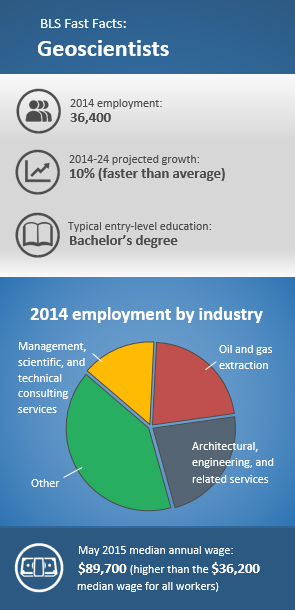All Categories
Featured
Table of Contents
How To Become A Geophysicist in Boya Australia 2021
This work is progressively contracted out, so consultancies provide another source of employment. Consultancy firms vary in size, from very little business to big multinationals. Some consultancies are quite specialised in using specific geophysical strategies or operating in particular locations, while others use a more varied series of services to their consumers.
The extraction of gas from land fill sites is another location of work and this may grow in the future. Expedition companies might carry out work for building and construction firms, public utility, mining companies and ecological firms, so geophysicists may be utilized in any of these settings. Other employers consist of: geological surveysgovernment bodies and agenciesuniversities and research institutes.

Vacancies might be listed in the oil and gas sector press. Recruitment is impacted by oil rate fluctuations and the level of competitors for positions differs depending on this. Careers Days, which cover the full variety of geoscience careers and are generally attended by a variety of essential market employers, are run by The Geological Society.
Airborne Geophysical Survey in North Perth Aus 2023
A few of the big oil and gas companies provide a full two-year structured training program throughout the breadth of geophysics, consisting of the opportunity to experience work in different teams prior to specialising in one area. Your training may consist of work on: existing wellsmagnetic and gravitational prospective field data analysisresearchrock analysis. It's more typical for your preliminary training to be supplied on the job.

There may be a probationary period throughout which you work alongside an experienced colleague. Competency-based appraisals happen frequently in the majority of companies. In smaller sized firms, and for academic posts, there is not likely to be any official training - you'll be anticipated to begin work straightaway and select up skills as you go along.
If you work for a smaller sized company, you may discover that you need to take responsibility for arranging and moneying your own advancement and training. If you have a geology degree, membership of The Geological Society can be useful for networking and for keeping up to date with the market.
Job Profiles : Geophysicist Physics in Kelmscott WA 2022
You may also find it helpful to join the PESGB (The Petroleum Exploration Society of Great Britain, which has a geophysics special interest group. After a probationary period, and when you have actually gotten some experience, you could advance to senior geophysicist, then team leader and then into a senior role in management.
The ease of motion in between functions depends upon the business structure. Research study at Masters or Ph, D level in a subject associated to geophysics or geosciences might aid with your career development and development. The work market within the oil and gas market is really based on price and this might impact your opportunities for career development.
Not all tasks are dependent on the oil and gas industries. For knowledgeable geophysicists, freelance consultancy provides a great path for profession advancement. You can also specialise in a specific area of geophysics. As a geophysicist, you're most likely to have several jobs throughout your working life. Worldwide mobility is vital for handling peaks and troughs in various countries at various times.
Geophysical Survey - An Overview in Viveash Western Australia 2021
From geophysics, it's possible to focus on seismology (finishing further training to end up being a seismic interpreter) or to move into associated locations such as engineering geology or threat forecast.
Choosing what to study in college is a difficult choice. Even if you know that your field of interest lies in science, what program of research study is right for you?
The first action to accomplishing your goal of becoming a geophysicist is making a degree. Even for entry-level positions in the field of geoscience, you'll require a bachelor's degree (a geophysicist college degree) from a recognized college or university. Geophysicists must be able to: examine rocks, photos, and other pieces of data carry out research study both in the field and in labs produce maps and charts of their findings write reports To accomplish all this, trainees need a specialized education for geophysicist professions.
As specified above, you'll need a bachelor's degree in geoscience or an associated discipline, such as a physical science or a life sciences, to land an entry-level task. Trainees can likewise prepare by majoring in topics like: Biology Chemistry Computer science Engineering Mathematics Physics The above geophysicist majors provide a more generalized technique to a single clinical discipline, however many programs need students to take one or more geology course.
Latest Posts
Geophysical Surveys Definition & Meaning In Stock ... in Murdoch Oz 2023
About Environmental Geophysics in Middle Swan Aus 2022
Geophysicist Job Description in Australia 2021